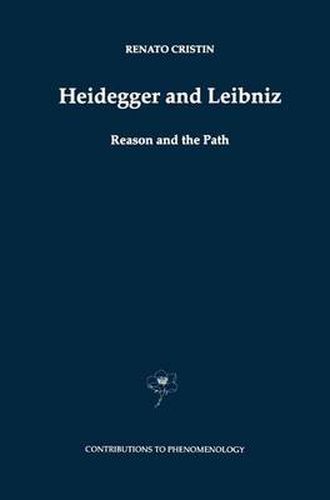Readings Newsletter
Become a Readings Member to make your shopping experience even easier.
Sign in or sign up for free!
You’re not far away from qualifying for FREE standard shipping within Australia
You’ve qualified for FREE standard shipping within Australia
The cart is loading…






This title is printed to order. This book may have been self-published. If so, we cannot guarantee the quality of the content. In the main most books will have gone through the editing process however some may not. We therefore suggest that you be aware of this before ordering this book. If in doubt check either the author or publisher’s details as we are unable to accept any returns unless they are faulty. Please contact us if you have any questions.
Heidegger holds that our age is dominated by the ambition of reason to possess the world. And he sees in Leibniz the man who formulated the theorem of our modern age: nothing happens without a reason. He calls this attitude calculating thought and opposes to it a kind of thought aimed at preserving the essence of things, which he calls meditating thought . Cristin’s book ascribes great importance to this polarity of thinking for the future of contemporary philosophy, and thus compares the basic ideas of the two thinkers. Leibniz announces the conquest of reason; Heidegger denounces the dangers of reason. Their diversity becomes manifest in the difference between the idea of reason and the image of the path. But is Leibniz’s thought really only calculating ? And do we not perhaps also encounter the traces of reason along Heidegger’s path? With these questions in mind we may begin to redefine the relation between the two thinkers and between two different conceptions of reason and philosophy. The hypothesis is advanced that Heidegger’s harsh judgment of Leibniz may be mitigated, but it also becomes clear that Heidegger’s rewriting of the code of reason is an integral part of our age, in which many signs point to new loci of rationality. With his original interpretation, aware of the risks he is taking, Renato Cristin offers a new guide to the understanding of reason: he shows Leibniz as one who defends the thought of being in the unity of monadology, and Heidegger as a thinker who preserves the sign of reason in his meditating thought.
$9.00 standard shipping within Australia
FREE standard shipping within Australia for orders over $100.00
Express & International shipping calculated at checkout
This title is printed to order. This book may have been self-published. If so, we cannot guarantee the quality of the content. In the main most books will have gone through the editing process however some may not. We therefore suggest that you be aware of this before ordering this book. If in doubt check either the author or publisher’s details as we are unable to accept any returns unless they are faulty. Please contact us if you have any questions.
Heidegger holds that our age is dominated by the ambition of reason to possess the world. And he sees in Leibniz the man who formulated the theorem of our modern age: nothing happens without a reason. He calls this attitude calculating thought and opposes to it a kind of thought aimed at preserving the essence of things, which he calls meditating thought . Cristin’s book ascribes great importance to this polarity of thinking for the future of contemporary philosophy, and thus compares the basic ideas of the two thinkers. Leibniz announces the conquest of reason; Heidegger denounces the dangers of reason. Their diversity becomes manifest in the difference between the idea of reason and the image of the path. But is Leibniz’s thought really only calculating ? And do we not perhaps also encounter the traces of reason along Heidegger’s path? With these questions in mind we may begin to redefine the relation between the two thinkers and between two different conceptions of reason and philosophy. The hypothesis is advanced that Heidegger’s harsh judgment of Leibniz may be mitigated, but it also becomes clear that Heidegger’s rewriting of the code of reason is an integral part of our age, in which many signs point to new loci of rationality. With his original interpretation, aware of the risks he is taking, Renato Cristin offers a new guide to the understanding of reason: he shows Leibniz as one who defends the thought of being in the unity of monadology, and Heidegger as a thinker who preserves the sign of reason in his meditating thought.